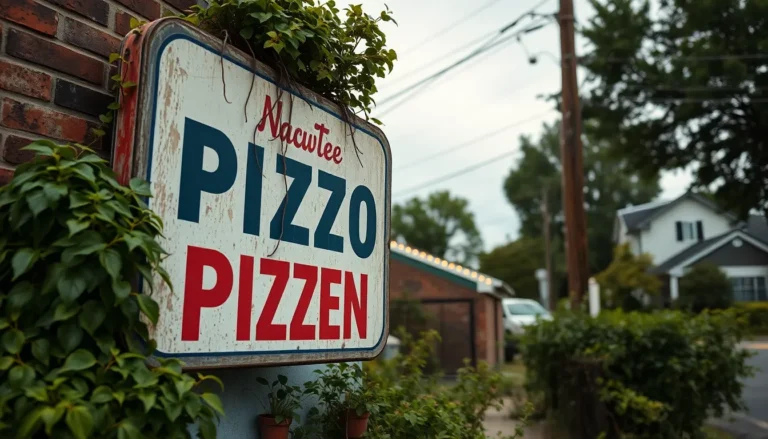Table of Contents
ToggleBuilding generational wealth isn’t just a fancy term thrown around at family gatherings; it’s the secret sauce for breaking the cycle of living paycheck to paycheck. Imagine passing down not just stories of struggle but also a treasure chest of financial wisdom and assets to your kids. It’s like giving them a head start in the marathon of life—without the risk of tripping over their shoelaces.
What Is Generational Wealth Building?
Generational wealth building refers to practices aimed at accumulating assets that can benefit future generations. It encompasses the strategic management of financial resources, investments, and property, transforming them into long-lasting wealth. Families focused on generational wealth provide descendants with a financial foundation that promotes economic stability.
Education plays a vital role in this process. Teaching children about money management equips them with the skills necessary to maintain and grow inherited assets. Additionally, instilling financial literacy prepares them to navigate potential challenges. Each generation should not just inherit wealth, but also understand how to sustain and expand it.
Investments are essential components of wealth building. Real estate, stocks, and businesses create opportunities for significant returns when managed wisely. Allocating resources to diverse investment vehicles minimizes risk and enhances growth potential. Families can increase their wealth through strategic decisions made today.
Furthermore, estate planning ensures that wealth transfers smoothly. Drafting wills and establishing trusts prevents future disputes over assets. Effective planning protects family legacies and preserves wealth across generations.
Community engagement also influences wealth building. Families that contribute to local economies through philanthropy strengthen their networks and opportunities. Supporting local businesses fosters economic growth and stability in the community, creating a broader impact.
Generational wealth building focuses on more than just accumulating money. It emphasizes the importance of passing down values and financial knowledge. By nurturing responsible financial habits and fostering a legacy, families empower future generations to thrive.
Importance of Generational Wealth Building

Generational wealth building serves a critical role in creating lasting financial stability. This foundational approach enhances the economic well-being of families across generations.
Financial Security for Future Generations
Financial security for future generations provides a safety net against unexpected challenges. Wealth accumulation through strategic investments, savings, and property ownership ensures that descendants face fewer financial hardships. A solid financial foundation allows families to cover educational expenses, health needs, and other necessary costs. Providing children with financial literacy education increases their capability to manage resources effectively. Investments in diversified assets help safeguard wealth against inflation. Furthermore, establishing emergency funds aids in protecting families during economic downturns.
Economic Mobility and Opportunities
Economic mobility and opportunities flourish through generational wealth. Access to financial resources enables individuals to pursue higher education and explore entrepreneurial ventures. Families often experience improved job prospects and career advancement with the support of inherited assets. Additionally, networks formed around wealth creation foster collaborations and mentorship opportunities. Children growing up in financially stable environments tend to develop greater confidence in pursuing their goals. Supporting philanthropic initiatives can enhance community engagement, leading to broader economic growth. Every investment in education and resources contributes to a brighter economic future for the next generation.
Strategies for Generational Wealth Building
Generational wealth building encompasses various practices and strategies aimed at ensuring financial stability for future descendants. Several methods exist to effectively accumulate and manage assets across generations.
Smart Investing Practices
Investing intelligently forms the backbone of wealth accumulation. Individuals prioritize diverse asset classes, including stocks and bonds, to spread risk and maximize returns. Growth-focused investments tend to outperform inflation, securing future purchasing power. Research often emphasizes the importance of early investments, leveraging compound interest to grow wealth over time. Utilizing retirement accounts, such as IRAs or 401(k)s, offers tax advantages, further enhancing financial growth. Regular portfolio reviews help adjust to market changes, ensuring investments align with financial goals.
Real Estate and Property Ownership
Owning real estate often proves beneficial for long-term wealth accumulation. Property values appreciate over time, providing equity that families can leverage. Rental properties generate passive income, contributing to financial security and increasing asset portfolios. Additionally, real estate can act as a hedge against inflation, promoting stability in uncertain economic conditions. Families frequently use real estate as a legacy asset, passing properties down to future generations while instilling responsibility in managing these valuable resources.
Education and Skill Development
Education remains a powerful tool in building generational wealth. Equipping children with financial literacy paves the way for informed decision-making regarding money management. Investing in quality education enhances career prospects, leading to higher earning potential. Skill development, including entrepreneurship and trade skills, fosters self-sufficiency and innovation. Families that prioritize educational opportunities create a strong foundation for future financial success, enabling descendants to navigate complex financial landscapes confidently. Financial workshops and mentorship programs can supplement formal education, nurturing a culture of learning and growth.
Common Challenges in Generational Wealth Building
Generational wealth building faces significant hurdles impacting families’ financial futures. Addressing these challenges requires a proactive approach focused on economic disparities and educating younger generations.
Economic Inequality
Economic inequality presents a formidable challenge to generational wealth. Many families lack access to resources that facilitate wealth accumulation, such as investment opportunities or quality education. Statistics indicate that wealth concentration continues to increase, particularly among affluent families, leaving lower-income families behind. Disparities in income, access to capital, and employment opportunities exacerbate these issues. As a result, families facing economic inequality struggle to pass down wealth effectively, hindering their descendants’ financial stability and opportunities.
Financial Literacy Gaps
Financial literacy gaps significantly affect wealth building efforts. Many children do not receive adequate financial education, limiting their understanding of money management, investments, and savings. Studies show that only 17 states in the U.S. require high school students to take a personal finance course, leaving many unprepared for financial challenges. Knowledge about budgeting, credit, and investments is crucial for maintaining and growing inherited wealth. Without this foundation, younger generations may mismanage resources, underscoring the necessity of integrating financial education within family discussions and school curriculums. Addressing these gaps ensures a more informed approach to managing wealth across generations.
Building generational wealth is more than just accumulating assets; it’s about creating a legacy that empowers future generations. By prioritizing financial education and smart investment strategies, families can establish a solid foundation for their descendants. This proactive approach not only enhances economic stability but also fosters resilience against unforeseen challenges.
As families engage in thoughtful estate planning and community involvement, they contribute to a cycle of prosperity that benefits everyone. The journey toward generational wealth is ongoing and requires commitment, but the rewards are invaluable. By investing in both financial resources and knowledge, families can ensure their legacy endures, paving the way for a brighter future.




